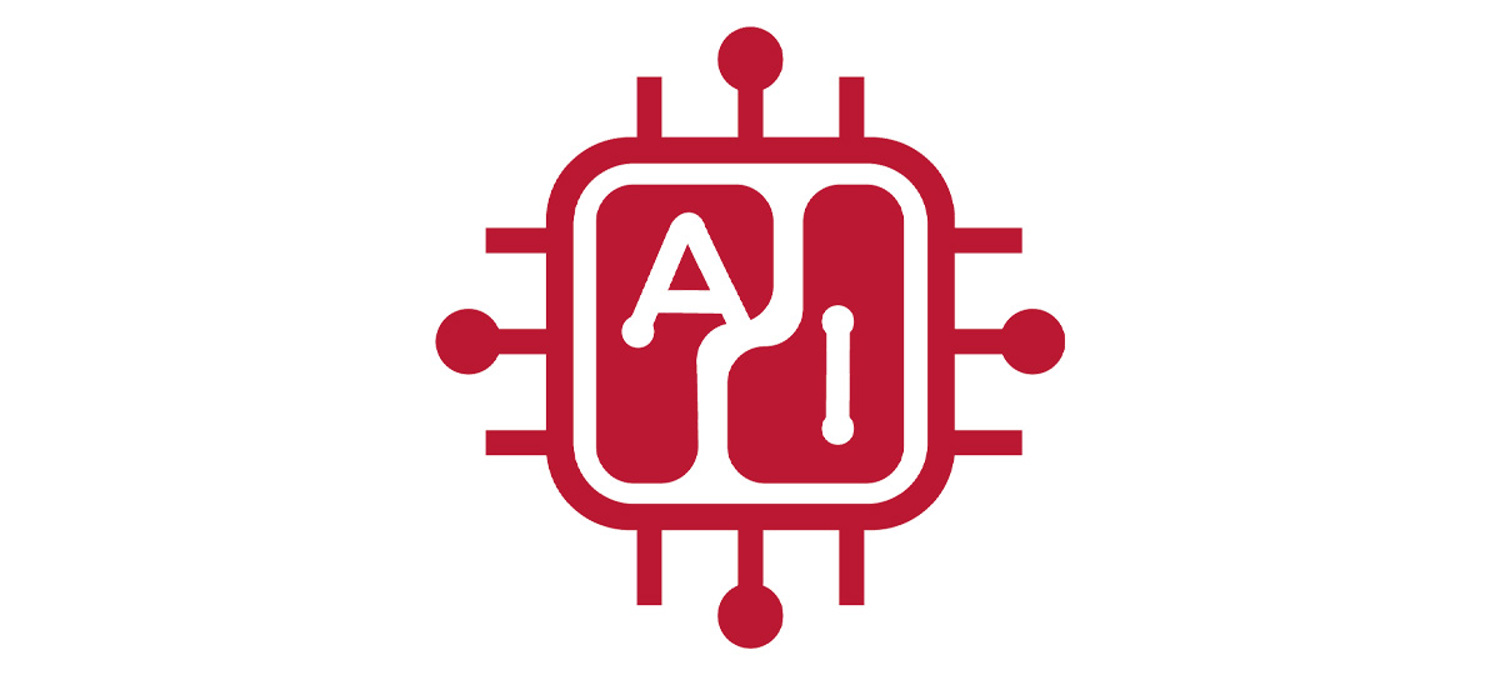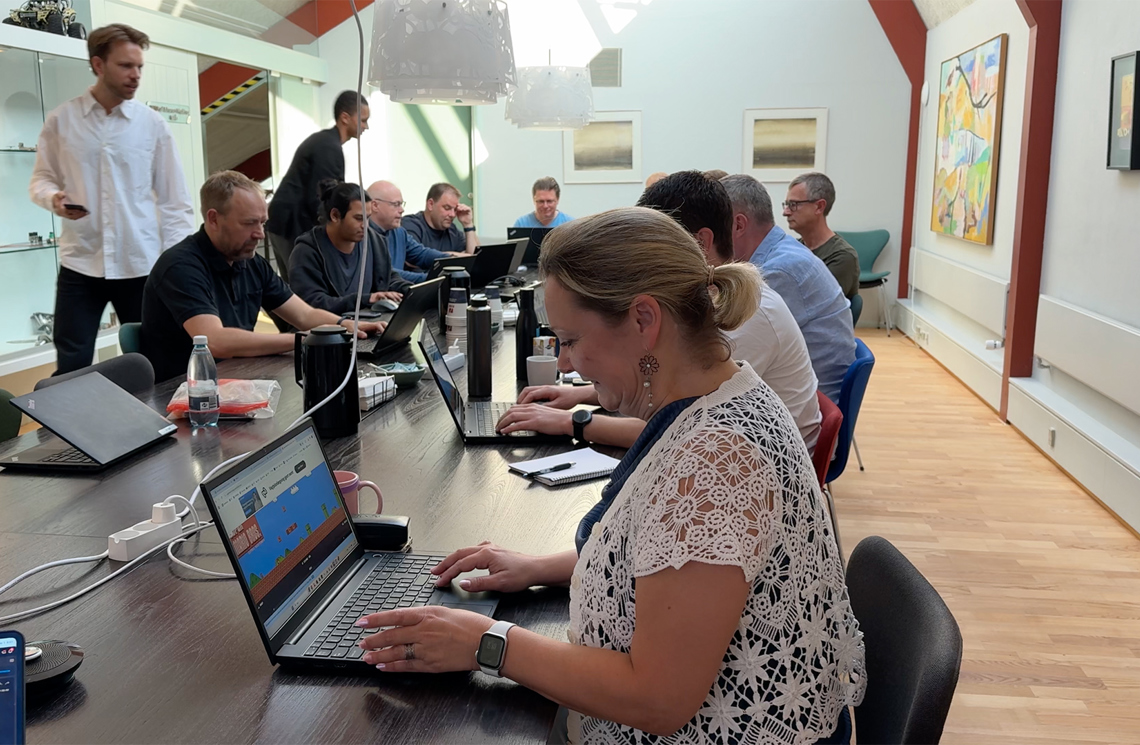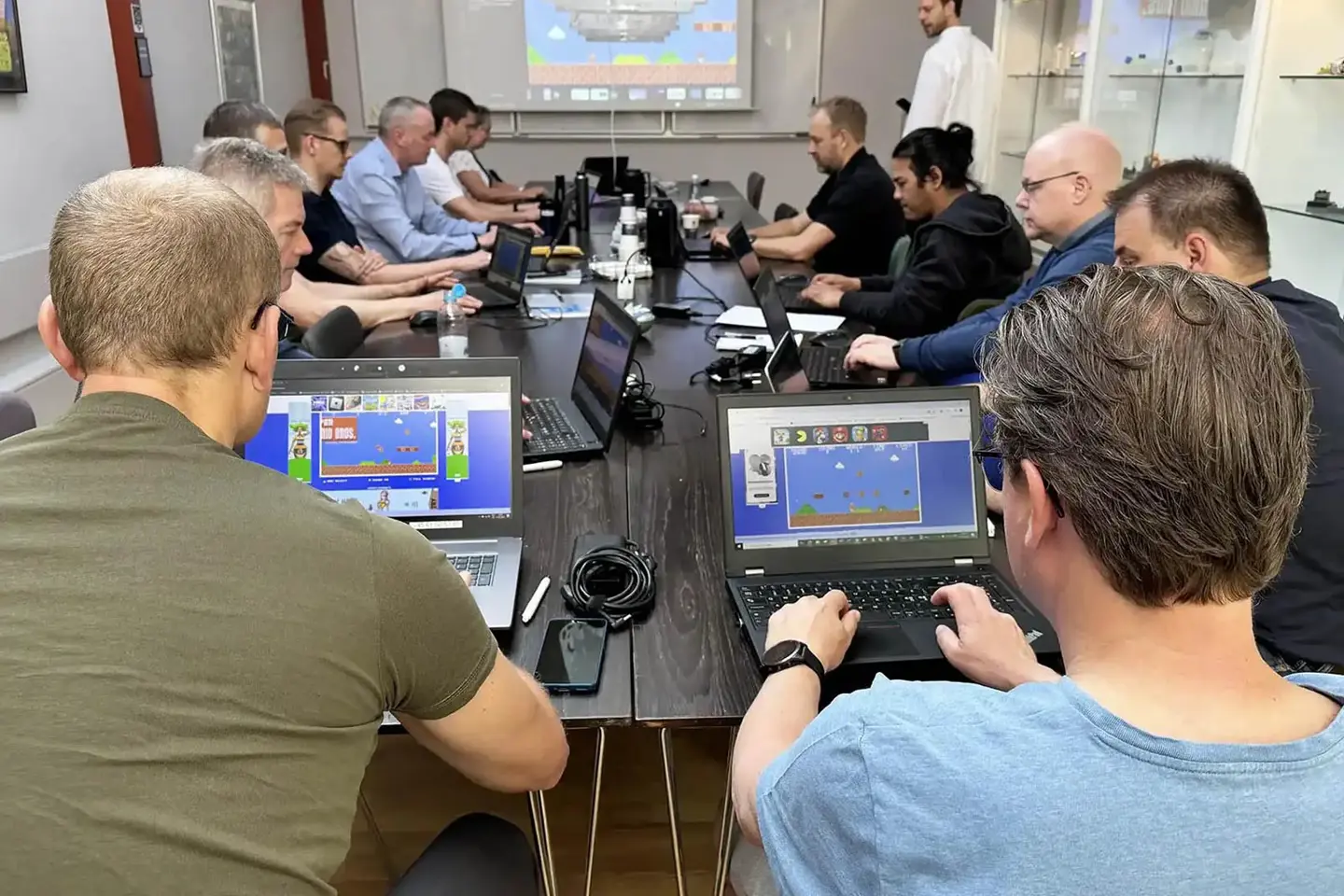SUPER MARIO AND SUPER USERS – IMPLEMENTING AI AT PJM

For us at PJM, being on the front foot of technological innovation has always been paramount. There is no question that Artificial Intelligence, AI, will play a transformative role in almost every line of work – from the basic administrative tasks to complex product design and intricate data handling – and automation solutions are no exception. AI offers possibilities unknown until now and we would like to give you some insights as to how we are embracing this revolutionary technology.
CHOOSING THE RIGHT PARTNER
As always, choosing the right partner is vital for us. There is a large amount of companies working with implementing AI in all sorts of businesses and the search for right partner has been a priority for us for a while, as we have touched upon earlier. After careful consideration, we chose Aplied.ai. Based in the Danish capital of Copenhagen, Aplied.ai are specialised in helping industrial and manufacturing companies seeking to get the advantages offered by the transformative technology known as AI.
Carl Kaltoft, junior management consultant at Aplied.ai, oversaw our training: “We offer two main services: training in AI tools like Microsoft Copilot, ChatGPT, etc., and a more project-oriented approach,” he explains. The first one is fairly straightforward and will improve efficiency in almost all departments – ultimately to the benefit of our customers – whereas the second one is more complicated: “The project-oriented approach requires a lot more from us and our customers,” Carl Kaltoft adds.
Aplied.ai divide the process in three different steps, the three E’s: Explore, Execute, and Elevate. “In the exploring phase, we initiate a thorough conversation about the customer’s needs and wishes. We conduct workshops and establish the framework of the partnership. Is it at all technically possible to apply AI? Is it financially feasible? Does the customer have the required data? Or the right data structure? Then we move on to the executing phase and develop a proof of concept, that we can test and measure in a relatively small scale. If it turns out successfully, we ramp up and spread it out throughout the organisation.”
In a later blog, we will elaborate on the project-oriented approach, but for the time being, we will focus on the initial training.

SUPER MARIO TRAINING
Successfully and meaningfully applying AI in a business is not something that you do overnight. It is not a magic wand but a long-term strategy that requires training, commitment, and a dedicated staff. Carl Kaltoft explains: ”We call it Super Mario training. We want to teach adults the joy of learning. We want to make them curious, make them approach their tasks in a new way, so they will keep on using what they’ve learned long after we are gone. They become – what we call – super users and without them, it’s difficult to make lasting impact.”
Among the super users, we find our mechanical engineer, Kasper Lynge Sørensen. He was among the first participants at the training workshops and has nothing but praise for his training: “Basically, we had lessons on how to prompt Microsoft Copilot. AI is actually quite stupid; it doesn’t know, what we don’t teach it, so it is about asking the right questions and giving the right commands.” After the initial workshop, all the participants went back to work for a week to implement what they had learned before meeting up for a new session. “Like that, it is the everyday use of the technology that becomes the main training.”

“We learn how to use Copilot just like we use Word or Excel, and once you know how to use effectively, it is super effective,” Kasper Lynge Sørensen explains. “Whenever I run into an obstacle, I turn to Copilot for sparring and inspiration,” and as he exemplifies, the possibilities are close to infinite.
By now, Kasper uses Copilot for almost everything from comparing inventory lists, conducting supplementary quality checks, to the actual design process: “I was tasked with designing a stop position for a lid for one of our machines but the space presented a problem: Due to other components, I only had a small design space that couldn't fit a gas spring or the other types of mechanical stops I had been looking at and the design had to have a very inconvenient bend. I prompted Copilot and it came up with a series of solutions – some of which I never would have thought of.” The same goes for material selection, code writing, and the list goes on, as Kasper explains. “Some of the problems I could have solved without the aid of AI, but it would have taken ages – this took seconds.” This massive ramp up in efficiency will, of course, ultimately benefit our customers, as they can expect an even higher degree of service in the future.
AI: A PRESENT FOR THE FUTURE
Although implementing AI represents an opportunity for immediate return on investment, it is essentially a strategic decision for the future. Carl Kaltoft explains: “New tools and applications are constantly released, and when they are, PJM will be ready, because the workforce is already familiar with the technology.” Not to mention future employees: “The best talent of the next generation will be expecting to work with AI. It’s not nice to have; it’s need to have.”
Kasper Lynge Sørensen agrees. “AI is extremely good at making you approach the job in a new way and it has already proved invaluable. The more I use it, the more I realise how many things that I have never thought about before.” His curious attitude is exactly what we are striving to inspire, and he makes no bones about the fact that – after the training – he has started taking his work home with him: “I have started using Copilot in my private life as well. For instance, I’m writing novels in my spare time and, from time to time, I ask it to be my editor.” After a short pause, Kasper continues with a sly grin: ”It turns out, a lot of the suggestions are rubbish.”
That just goes to show that AI is a supplement, not a replacement. Although it is an extremely potent tool, it cannot replace the competence of a dedicated staff – but it surely can help them achieve even higher goals.
Later this year, we will bring you more insights on how AI is transforming PJM. Stay tuned!
